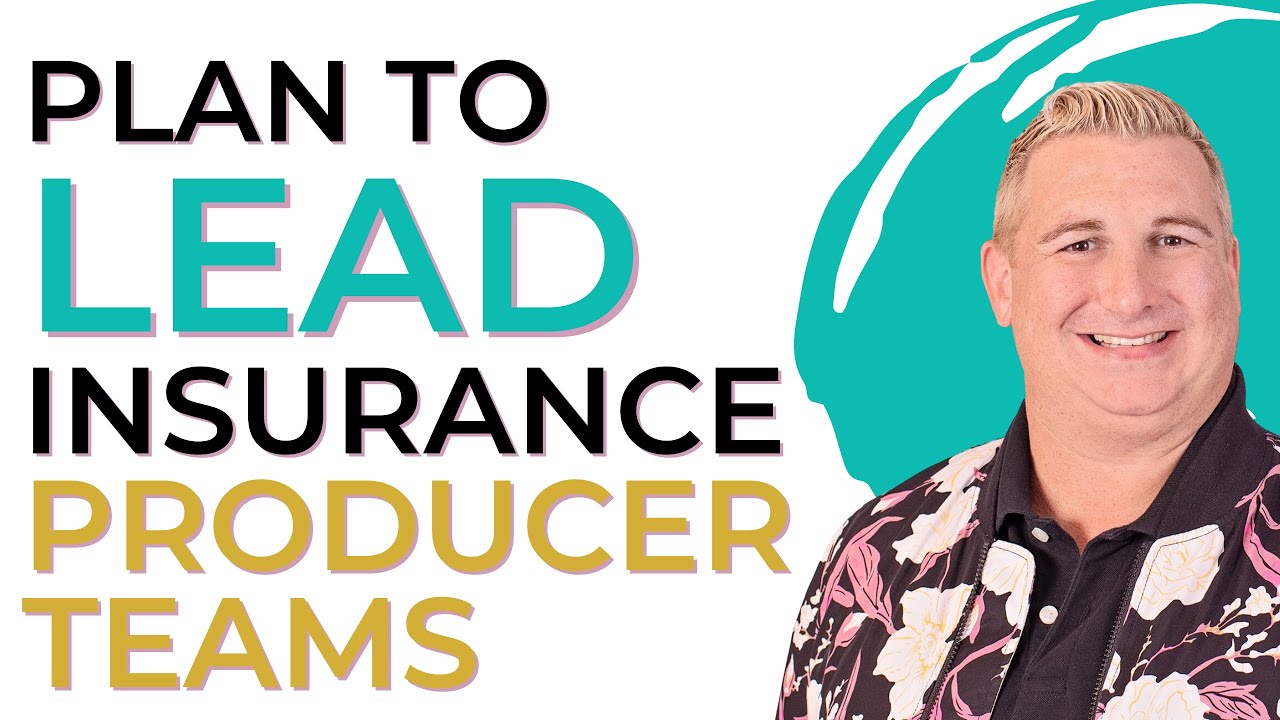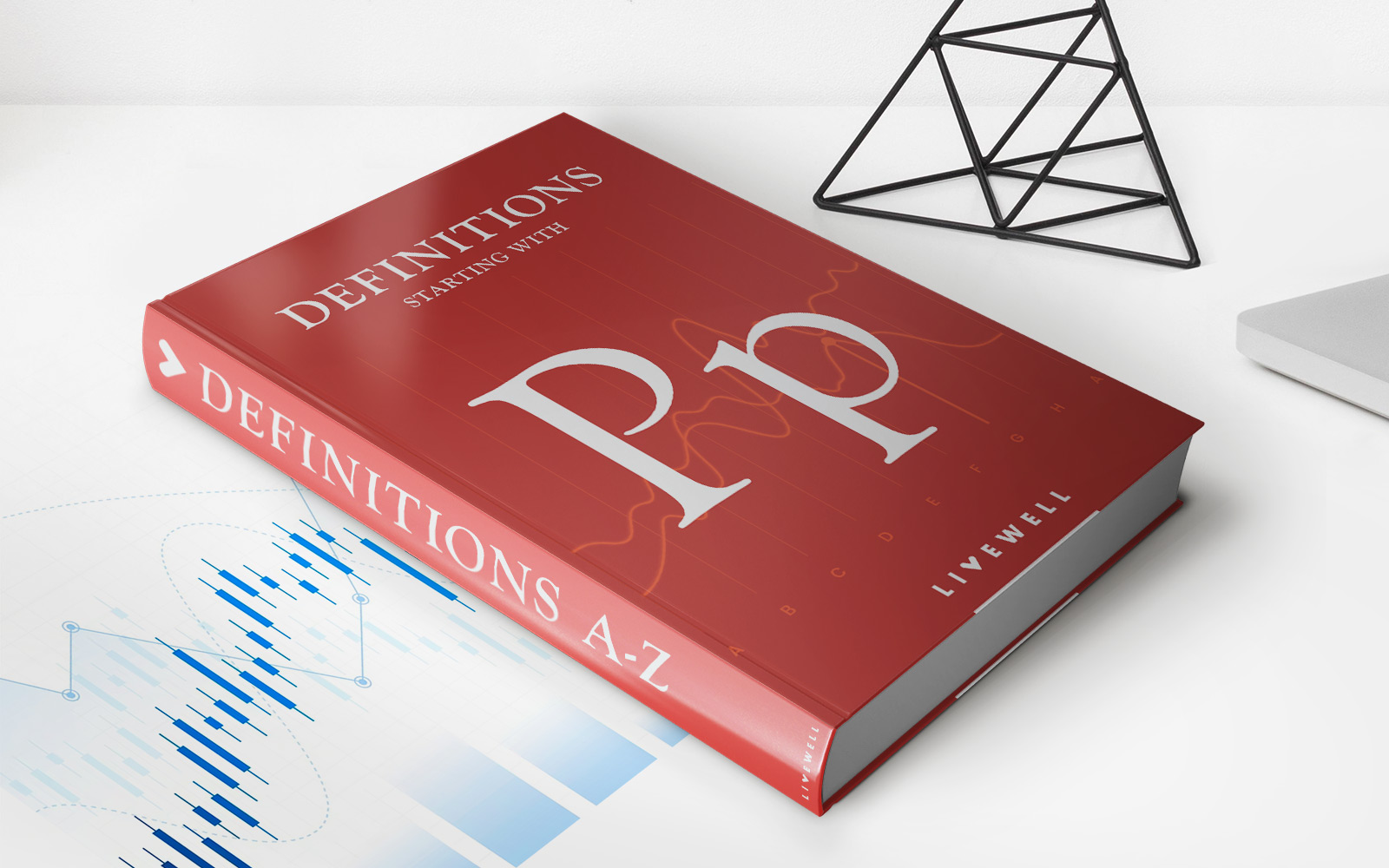

Finance
What Is An Insurance Producer?
Published: November 12, 2023
Looking for a career in finance? Learn all about insurance producers and their role in the industry. Find out what it takes to become an insurance producer and excel in the field.
(Many of the links in this article redirect to a specific reviewed product. Your purchase of these products through affiliate links helps to generate commission for LiveWell, at no extra cost. Learn more)
Table of Contents
Introduction
Insurance plays a vital role in protecting individuals, businesses, and assets from financial risks. To navigate the complex world of insurance, many people turn to professionals who specialize in this field. One such professional is an insurance producer.
An insurance producer, also known as an insurance broker, is an expert in the insurance industry who assists individuals and businesses in finding the right insurance coverage to meet their specific needs. They act as a liaison between insurance companies and their clients, providing valuable guidance and advice throughout the insurance purchasing process.
Whether you’re seeking coverage for your home, car, business, or personal liabilities, an insurance producer can help you navigate policy options, understand the fine print, and ensure you obtain the appropriate coverage at a competitive price.
In this article, we will explore the role of an insurance producer, their responsibilities, qualifications, types, compensation, and the benefits of working with one. Understanding the vital role of insurance producers can help individuals and businesses make informed decisions when it comes to protecting their assets and mitigating financial risks.
Role of an Insurance Producer
An insurance producer plays a crucial role in the insurance industry by connecting clients with insurance providers. Their primary objective is to help individuals and businesses find the most suitable insurance coverage to meet their unique needs and protect them from potential risks.
One of the main responsibilities of an insurance producer is to assess the insurance needs of their clients. This involves conducting thorough evaluations of their assets, liabilities, and potential risks. Based on this assessment, the producer identifies the types and amounts of insurance coverage required. They then search the market for the most appropriate insurance policies that provide the necessary coverage.
Once suitable insurance options have been identified, the producer’s role is to educate, advise, and guide clients through the intricacies of the policies. They explain the terms and conditions, coverage limits, deductibles, and any exclusions or endorsements that clients need to be aware of. This ensures that clients have a clear understanding of what their insurance policy entails.
Additionally, insurance producers facilitate the application and underwriting process. They gather the necessary information and documentation required by insurance companies, ensuring that the application is complete and accurate. They also work closely with the underwriters to negotiate rates and terms on behalf of their clients.
Furthermore, an insurance producer assists clients in managing their insurance policies. This includes reviewing and updating policies regularly to ensure they remain adequate and reflect any changes in the client’s circumstances or risk profile. In the event of a claim, the producer acts as an intermediary, working with clients and insurance companies to process the claim and ensure a fair resolution.
Overall, the role of an insurance producer is to provide personalized service and expertise to clients throughout the insurance process. They act as trusted advisors, helping clients make informed decisions and navigate the complexities of insurance policies. Their goal is to ensure that clients have the right coverage in place to safeguard their financial well-being in the face of unforeseen events and risks.
Responsibilities of an Insurance Producer
Insurance producers play a crucial role in assisting individuals and businesses in obtaining the right insurance coverage to protect their assets and mitigate financial risks. Their responsibilities encompass a wide range of tasks that contribute to the overall satisfaction and well-being of their clients. Here are the key responsibilities of an insurance producer:
- Evaluating Insurance Needs: Insurance producers thoroughly assess the insurance needs of their clients by conducting a detailed analysis of their assets, liabilities, and potential risks. This evaluation helps them determine the appropriate types and amounts of coverage required to adequately protect their clients.
- Researching Insurance policies: After identifying the insurance needs, producers undertake extensive research to identify the best insurance policies available in the market. They compare various providers, their coverage options, policy terms, and pricing to recommend the most suitable options to their clients.
- Providing Expert Advice: Insurance producers have a wealth of knowledge about insurance policies and industry trends. They provide expert advice and guidance to their clients, explaining complex insurance terms and conditions in a way that clients can easily understand. They help clients make informed decisions based on their unique circumstances and risk profiles.
- Negotiating with Insurance Companies: Producers act as intermediaries between their clients and insurance companies. They negotiate policy rates and terms on behalf of their clients to ensure they get the best possible coverage at competitive prices. Producers use their industry expertise and relationships with insurance providers to advocate for their clients’ interests.
- Assisting with Application and Underwriting: Insurance producers assist clients in completing insurance applications accurately and efficiently. They collect all necessary information and documentation required by insurance companies to streamline the underwriting process. Producers work closely with underwriters to provide any additional information or address any concerns that may arise.
- Managing Policies: Once policies are in place, insurance producers help clients manage their insurance coverage effectively. They review policies regularly to ensure they remain adequate and up-to-date. Producers also help clients make necessary adjustments to their coverage when circumstances change, such as acquiring new assets, starting a business, or expanding operations.
- Processing Claims: In the event of a claim, insurance producers support their clients by assisting with the claims process. They act as a liaison between clients and insurance companies, helping clients file claims accurately and advocating for fair and timely claim settlements. Producers ensure that clients receive the compensation they are entitled to under their insurance policies.
Overall, insurance producers take on multiple responsibilities to provide personalized service, expert advice, and seamless insurance experiences for their clients. Their goal is to simplify the insurance process, ensure adequate coverage, and offer peace of mind to individuals and businesses.
Qualifications and Licensing
Becoming an insurance producer requires individuals to meet certain qualifications and obtain the necessary licenses. These requirements vary depending on the jurisdiction and the type of insurance being sold. Here are the general qualifications and licensing requirements for insurance producers:
1. Education and Training: Most insurance producers must possess a high school diploma or equivalent. However, some insurance companies may prefer candidates with a college degree in business, finance, or a related field. Additionally, completing relevant insurance courses and obtaining industry certifications can enhance a candidate’s knowledge and credibility.
2. Pre-licensing Education: Before applying for an insurance producer license, candidates are usually required to complete a pre-licensing education program. These programs provide the necessary foundational knowledge and understanding of insurance principles, laws, and regulations. The number of required hours and specific topics covered may vary depending on the jurisdiction.
3. Licensing Exam: After completing the pre-licensing education, aspiring insurance producers must pass a licensing exam. The exam assesses the candidate’s knowledge of insurance concepts, policies, ethics, and legal requirements. The format and content of the exam may differ based on the type of insurance being sold, such as life insurance, property and casualty insurance, or health insurance.
4. Background Check: As part of the licensing process, insurance producers are typically required to undergo a background check. This ensures that they have a suitable character and do not have any criminal convictions that could adversely affect their ability to fulfill their duties as insurance professionals.
5. Continuing Education: After obtaining an insurance producer license, individuals must fulfill ongoing continuing education requirements. These requirements vary by jurisdiction and typically involve completing a certain number of hours of approved courses within a specific time period. Continuing education ensures that insurance producers stay updated on industry trends, laws, and regulations.
It is important to note that specific licensing requirements may differ by location and the type of insurance that producers sell. Some specialized areas, such as selling securities-based insurance products, may have additional licensing requirements, such as obtaining a securities license.
Insurance producers may also need to obtain licenses in multiple states if they wish to sell insurance across state lines. Each state has its own licensing requirements and procedures, and producers must comply with these regulations to legally sell insurance to clients in different states.
By meeting the necessary qualifications and obtaining the required licenses, insurance producers demonstrate their competency and commitment to serving the needs of their clients. Licensing ensures that producers have the knowledge and understanding of insurance principles and are equipped to provide accurate and reliable advice to their clients.
Types of Insurance Producers
Insurance producers can specialize in various types of insurance coverage, catering to the diverse needs of individuals and businesses. Here are some common types of insurance producers:
- Property and Casualty Insurance Producers: Property and casualty insurance producers help clients obtain coverage for their personal and commercial properties, as well as liability protection. They assist with policies such as homeowners insurance, auto insurance, renters insurance, general liability insurance, and business property insurance.
- Life and Health Insurance Producers: Life and health insurance producers focus on helping clients secure coverage for life insurance, health insurance, disability insurance, and long-term care insurance. They assess clients’ needs, provide options for protection, and guide them through the application and underwriting process.
- Commercial Insurance Producers: Commercial insurance producers specialize in providing insurance solutions for businesses and organizations. They work with companies of all sizes and industries to assess their risks and recommend coverage for property, liability, commercial auto, workers’ compensation, and specialized insurance products tailored to the business industry.
- Specialty Insurance Producers: Specialty insurance producers focus on niche areas of insurance. They have expertise in specific fields such as marine insurance, aviation insurance, energy insurance, cyber insurance, or professional liability insurance. These producers understand the unique risks associated with these industries and provide specialized coverage options.
- Independent Insurance Producers: Independent insurance producers work with multiple insurance companies, offering clients a wide range of insurance options. They compare policies from different insurers to find the best coverage and rates for their clients’ specific needs. Independent producers provide unbiased advice and are not tied to any single insurance carrier.
- Captive Insurance Producers: Captive insurance producers work exclusively with one insurance company. They represent and sell the policies of that particular insurer. Captive producers develop an in-depth understanding of the company’s products and services, allowing them to provide specialized guidance to clients seeking coverage from that specific insurer.
It’s important to note that insurance producers can specialize in one or multiple types of insurance. They may choose to focus on personal lines, commercial lines, or a combination of both. The type of producer selected depends on the specific insurance needs of clients and the expertise required in their particular area of coverage.
Regardless of the type of insurance producer, their primary goal is to assist clients in obtaining the appropriate insurance coverage that aligns with their unique needs and provides financial protection against potential risks.
Compensation and Earnings
Insurance producers can earn a variety of compensation structures, depending on factors such as their experience, the type of insurance they sell, and the company they work for. Here are some common forms of compensation for insurance producers:
- Commission-Based Earnings: The most common compensation structure for insurance producers is commission-based earnings. Producers earn a percentage of the premiums paid by clients for insurance policies they sell. The commission rate can vary depending on the type of insurance and the company’s commission structure. Higher-value policies often yield higher commission rates.
- Salary or Base Pay: Some insurance producers, especially those in entry-level positions or working for larger insurance agencies, may receive a base salary or hourly wage in addition to commissions. This provides a stable income regardless of sales performance and is common for producers focusing on customer service or administrative tasks.
- Renewal Commissions: In addition to earning commissions on the initial sale, insurance producers may receive renewal commissions for policies that are renewed by clients. These commissions reward producers for maintaining client relationships and ensuring policy retention over time.
- Bonuses and Incentives: Insurance companies may offer bonuses and incentives to producers who meet or exceed sales targets, achieve high customer satisfaction ratings, or demonstrate exceptional performance. These additional rewards can contribute significantly to an insurance producer’s earnings.
- Profit Sharing: In some cases, insurance producers may be eligible for profit-sharing programs offered by their agency or company. These programs distribute a portion of the profits generated by the agency or company to eligible producers based on specific criteria, such as their contribution to overall sales or customer retention.
It’s important to note that earnings for insurance producers can vary widely depending on their sales volume, client base, type of insurance sold, and the overall performance of the insurance market. Experienced and successful producers have the potential to earn high incomes, especially if they build a large and loyal client base over time.
Insurance producers who work as independent agents have the opportunity to earn higher commissions due to their ability to work with multiple insurance carriers. However, they also bear more responsibility for expenses such as marketing, office space, and administrative costs.
As with any profession, earnings for insurance producers can fluctuate. Market conditions, competition, and individual sales efforts all play a role in determining an insurance producer’s income. Producers who excel in building relationships, providing exceptional service, and consistently meeting the insurance needs of their clients tend to achieve higher earnings over the long term.
Insurance Producer vs. Insurance Agent
The terms “insurance producer” and “insurance agent” are often used interchangeably, but there are some important distinctions between the two. While both roles involve selling insurance policies, there are key differences in their responsibilities and relationships with insurance companies. Here are the main differentiating factors between insurance producers and insurance agents:
1. Relationship with Insurance Companies: Insurance producers typically act as intermediaries between clients and insurance companies. They work on behalf of their clients to find the most suitable insurance policies from various insurance providers. On the other hand, insurance agents have a contractual relationship with one specific insurance company, representing and selling that company’s policies exclusively.
2. Independence: Insurance producers are often independent professionals who have the flexibility to work with multiple insurance carriers. They can compare policies and rates from various providers to offer clients a wider range of options. Insurance agents, on the other hand, are typically tied to one insurance company and sell its products exclusively.
3. Scope of Offerings: Insurance producers are more likely to provide a comprehensive range of insurance products and services. They can offer coverage options from multiple insurance companies, allowing clients to select the policies that best meet their needs. Insurance agents primarily focus on selling the insurance products of the company they represent, limiting their offerings to the products available within their agency.
4. Client-Centric Approach: Insurance producers often prioritize the needs and interests of their clients above the insurance companies they work with. They represent the client’s best interests and provide unbiased advice and recommendations. Insurance agents, while dedicated to serving their clients, also have an affinity towards promoting the products and policies of their specific insurance company.
5. Licensing and Regulation: Insurance producers and insurance agents are both required to obtain appropriate licenses and meet regulatory requirements. However, the licensing process and requirements may differ based on the specific role and the jurisdiction. Insurance producers may have additional licensing requirements to sell certain types of insurance, such as life insurance or health insurance.
While these distinctions exist, it’s important to note that the terminology can vary depending on the region or jurisdiction. In some areas, the terms “insurance producer” and “insurance agent” are used interchangeably to refer to professionals who sell insurance policies. It is always recommended to clarify the specific roles and responsibilities with the individual or company you are working with.
Ultimately, whether you work with an insurance producer or an insurance agent, the most important factor is finding a knowledgeable and trustworthy professional who can guide you in selecting the insurance coverage that best meets your needs.
Benefits of Using an Insurance Producer
Choosing the right insurance coverage can be a complex and overwhelming task. That’s where an insurance producer can make a significant difference. Here are some key benefits of using an insurance producer:
- Expertise and Knowledge: Insurance producers possess in-depth knowledge of the insurance industry and its intricacies. They understand the various types of insurance coverage available and can guide you through the process of selecting the right policies to meet your specific needs. Their expertise ensures that you make informed decisions based on your unique circumstances.
- Personalized Service: Insurance producers offer personalized service tailored to your requirements. They take the time to understand your individual needs, assess your risks, and provide personalized recommendations for insurance coverage. Insurance producers act as a trusted advisor, working on your behalf to find the best policies that align with your budget and provide adequate protection.
- Access to Multiple Insurance Options: Insurance producers have access to a wide range of insurance providers and can offer you multiple coverage options. This allows them to compare policies, coverage terms, and pricing from different insurers, ensuring that you have a comprehensive selection of options to choose from. This enables you to make a well-informed decision based on your specific needs and preferences.
- Assistance with Claims: Dealing with insurance claims can be a complex and time-consuming process. An insurance producer can provide valuable assistance throughout the claims process. They act as an intermediary between you and the insurance company, helping you navigate the necessary paperwork, providing guidance, and advocating for fair and timely claim settlements. With an insurance producer on your side, you can streamline the claims process and maximize your chances of a successful outcome.
- Regular Policy Reviews: Insurance needs can evolve over time due to changes in personal circumstances, business expansions, or new assets. An insurance producer can conduct regular policy reviews to ensure that your insurance coverage remains up to date and adequate. They can identify any gaps or overlaps in your coverage and make necessary adjustments to ensure that you are adequately protected at all times.
- Save Time and Effort: Searching for insurance coverage on your own can be time-consuming and overwhelming. Insurance producers save you time and effort by doing the legwork for you. They research policies, gather information, and present you with the most suitable options. This allows you to focus on your core responsibilities while leaving the task of finding the right insurance coverage to the experts.
Overall, working with an insurance producer provides you with peace of mind, knowing that you have a knowledgeable professional on your side, dedicated to helping you find the best insurance coverage. Their expertise, personalized service, access to multiple options, and assistance throughout the claims process make them a valuable asset in securing the protection you need for your personal or business assets.
Conclusion
Insurance producers play a vital role in the insurance industry, acting as trusted advisors who help individuals and businesses navigate the complexities of insurance coverage. From evaluating insurance needs to researching policy options and assisting with claims, insurance producers provide valuable guidance throughout the insurance journey.
By leveraging their expertise and knowledge of the insurance market, insurance producers help clients find the most suitable coverage to protect their assets and mitigate financial risks. They provide personalized service, offering a wide range of insurance options from multiple providers, ensuring clients have the necessary information to make informed decisions.
In addition to their knowledge and access to insurance offerings, insurance producers also provide ongoing support. They conduct regular policy reviews, help with claims processing, and ensure clients’ coverage remains up to date and adequate as their circumstances change. This personalized approach saves clients time and effort, allowing them to focus on their own priorities while leaving the insurance research and management to the experts.
Overall, working with an insurance producer offers numerous benefits, including professional guidance, access to multiple options, personalized service, and support throughout the insurance process. Whether you’re an individual seeking personal coverage or a business owner looking for commercial insurance, an insurance producer can make a significant difference in helping you find the right insurance coverage tailored to your specific needs.
Remember, insurance is an essential tool for protecting your financial well-being from unforeseen events and risks. By partnering with an insurance producer, you can gain peace of mind and confidence in your insurance choices, knowing that you have a knowledgeable professional by your side, advocating for your best interests.














